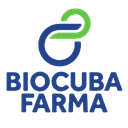
X Conferencia Científica Internacional sobre Desarrollo Agropecuario y Sostenibilidad
X Simposio de Agronomía
Resumen
• Problemática: La obtención de abonos orgánicos a partir de hojarasca de marabú es novedoso y no se conoce que dosis de estos abonos tiene el mejor efecto en el crecimiento foliar del maíz.
• Objetivo(s): Evaluar el efecto de abonos orgánicos a partir de hojarasca de marabú sobre el crecimiento foliar del maíz en condiciones semicontroladas.
• Metodología: Se utilizó suelo Pardo mullido medianamente lavado de un área de agricultura convencional (papa) ubicado la UBPC # 3 "Valle del Yabú" y se montó un experimento en condiciones semicontroladas, completamente aleatorizado con 4 tratamientos y 3 réplicas. Los tratamientos fueron: control sin fertilización, N 100 kg ha-1 (Urea), 8 t ha-1 compost de marabú y 8 t ha-1 humus de lombriz a partir de hojarasca de marabú. Los indicadores de crecimiento del maíz fueron: peso fresco y seco (PFPA y PSPA), materia seca (MSPA), y longitud total de parte aérea (LTPA).
• Resultados y discusión: Los tratamientos con abonos orgánicos presentan menores valores para PFPA y PSPA en comparación con el control sin fertilización y N (100 kg ha-1) (Urea). El contenido de MSPA de las plantas es mayor en el tratamiento con 8 t ha-1 de compost de marabú y el Control sin fertilización con más de 12%. La LTPA no muestra diferencias estadísticas entre los tratamientos, aunque es mayor en la urea (100 kg ha-1 N) con 75,09 cm.
• Conclusiones: La aplicación 8 t ha-1 de compost de marabú tuvo mejor efecto integral sobre los parámetros de crecimiento foliar del maíz.
Abstract
• Problem: Obtaining organic fertilizers from marabou leaf litter is novel and it is not known which doses of these fertilizers have the best effect on the foliar growth of corn.
• Objective(s): Evaluate the effect of organic fertilizers from marabou leaf litter on the foliar growth of corn under semi-controlled conditions.
• Methodology: Medium-washed soft brown soil from a conventional agricultural area (potato) located at UBPC # 3 "Valle del Yabú" was used and an experiment was set up under semi-controlled conditions, completely randomized with 4 treatments and 3 replications. The treatments were: control without fertilization, N 100 kg ha-1 (Urea), 8 t ha-1 marabou compost and 8 t ha-1 worm humus from marabou leaf litter. The corn growth indicators were: fresh and dry weight (PFPA and PSPA), dry matter (MSPA), and total aerial part length (LTPA).
• Results and discussion: Treatments with organic fertilizers present lower values for PFPA and PSPA compared to the control without fertilization and N (100 kg ha-1) (Urea). The MSPA content of the plants is higher in the treatment with 8 t ha-1 of marabou compost and the Control without fertilization with more than 12%. The LTPA does not show statistical differences between the treatments, although it is higher in urea (100 kg ha-1 N) with 75.09 cm.
• Conclusions: The application of 8 t ha-1 of marabou compost had a better comprehensive effect on the foliar growth parameters of corn.
Sobre el ponente

MsC. Alianny Rodríguez Urrutia

Discussion

